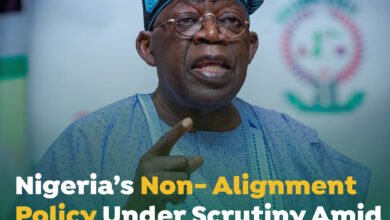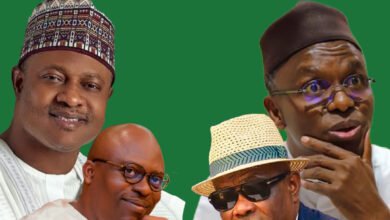
A nation rises and falls based on the character and competence of its leaders. Nigeria is no exception. Many attribute Nigeria’s inability to overcome its challenges to a multitude of factors, including leadership, colonialism, imperialism, cronyism, tribalism, and pre-bendalism.
The foremost literary giant, the late Chinua Achebe, said the problem with Nigeria is simply and squarely a leadership problem. “There is nothing basically wrong with the Nigerian land, climate, water, air, or anything else,” Achebe wrote. “The Nigerian problem is the unwillingness or inability of its leaders to rise to the responsibility and challenge of personal example, which are the hallmarks of true leadership,” he concluded in his book, The Trouble with Nigeria.
Ndume’s Shocking Confession
Ali Ndume, the Chief Whip of the Senate and Nigeria’s longest-serving Senator, recently made a shocking confession during a televised interview. Ndume, a man who should embody the principles of transparency and accountability, instead downplayed the seriousness of corruption, particularly among politicians.
“If you compare us, politicians, to all the corruption, it is very small,” Ndume said in a TV interview last week. “Our corruption is human-driven. If you steal it, you will go and share it with others. If you don’t, you are not coming back for four years. There is no reason for stealing.”
Ndume’s flippant comments sparked outrage. Many Nigerians called for investigations into his own actions, given his long tenure in office.
Corruption’s Devastating Impact
Ndume’s attempt to differentiate between types of corruption misses the point entirely. As public analyst Amaka Daniels points out, “the corruption he proudly spoke about on National TV has messed up Nigeria’s infrastructural development that could help stem insecurity, unemployment, and multidimensional poverty once and for all.”
Ndume even went on to advocate for the death penalty only for corruption exceeding a trillion dollars.
He said, “I have been to the National Assembly; I can’t say because we are on TV now and telling the truth.” If the death penalty is to be a part of corruption, I am in favor of it. However, I disagree with the idea of killing someone who steals a million or a billion dollars. Instead, I believe that someone who steals a trillion dollars from the government should face death.
While frustrated with the pervasiveness of corruption, experts argue that such extreme measures lack practicality and focus should be on strengthening anti-graft institutions.
Samuel Adebayo, commenting on Ndume’s remarks, said, “The only reason corruption has festered in Nigeria is because people like him in the corridor of power have lost the moral fortitude to resist the urge for misappropriation of public funds.” The source of Adebayo’s quote was another interview following Ndume’s initial comments.
“What the likes of Ndume and co. Don’t understand is that the corruption he proudly and boldly spoke about on National TV has messed Nigeria’s infrastructural development that could help stem insecurity, unemployment, and multidimensional poverty once and for all,” Amaka Daniels, a public analyst, posited.
She added that instead, Ndume continued to speak glowingly about which corruption was better than the other. Other analysts argue that while Ndume’s revelation and comparison are not novel, the government should prioritize combating embezzlement and misappropriation of public funds to prevent the country from collapsing. They urged the anti-graft EFCC to remain unfazed by Senator Ndume’s verbal outburst about the widespread corruption in the nation.





